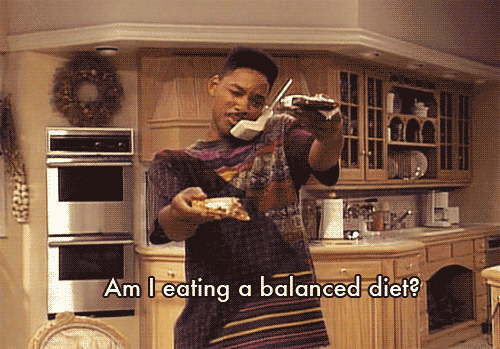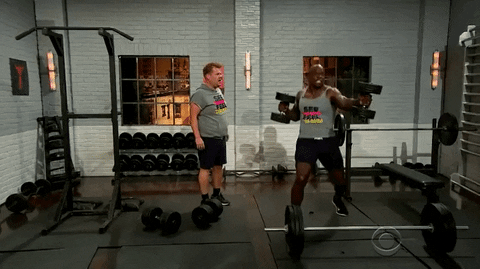When Do You Need a Nutritionist and Personal Trainer?
Our content strives to support, inform, and motivate you to meet your health goals. We want to be your trusted source of expert- and science-backed info dispensed in simple, actionable ways. Read our Editorial Guidelines.
If you’ve been at this whole “health journey” thing for a while, then you probably know that succeeding on your own is no easy feat.
Of course, it’s possible to make progress by yourself. But what if you feel like you aren’t toning up, losing weight, or building muscle as fast as you could be? A nutritionist and personal trainer can help you make your fitness and nutrition plans as effective as possible and offer you help if those plans need to change.
If you’ve got questions about nutritionists and personal trainers, we’ve got answers. Below, learn exactly what a nutritionist and personal trainer can do for you, as well as what to consider before hiring help.
How Is a Nutritionist Different from a Registered Dietitian?

So who exactly are nutritionists, and how can they help you along your wellness journey?
A nutritionist is a health professional who provides nutrition coaching to help clients reach their weight loss, fitness, or wellness goals. However, keep in mind that a nutritionist’s role differs from a registered dietitian.
Here’s the main difference: A dietitian can prescribe specific meal plans and supplements to treat or manage a condition. Nutritionists, on the other hand, focus on general food behavior and healthy lifestyle change.
Nutritionists can have bachelor's degrees in nutrition but they're not required to do so; they may also pursue nutrition certifications. For example, some nutritionists will become experts in sports nutrition or even go so far as to become certified nutrition specialists (CNS).
"A nutritionist does not need to have any nutrition degree. It can be a person that just calls themselves a nutritionist," says Lisa Andrews, RD, and creator of Sound Bites Nutrition.
Registered dietitians have to earn at least a bachelor's degree in the sciences from an accredited university. Practical, supervised training in the application of scientific nutrition and dietetics must be included from an accredited program is also required. They must also pass a national exam and complete ongoing education requirements to retain their RD status. Many RDs also hold master's degrees and additional certifications in order to advise clients in specific settings.
What Can a Nutritionist Help You With?
Nutritionists can teach you how to make sustainable, healthy decisions about your diet. Specifically, they can help:
Show you which food choices can best support your health and wellness goals
Give you the tools, knowledge, and resources to improve your nutrient intake
Give you recipes and meal suggestions to support your health goals, whether those are weight management, muscle gains, or something else
Monitor your progress, helping you adjust your diet when needed
Benefits of Working With a Nutritionist
So, what are the benefits of working with an expert-level nutritionist?
Well, they can:
Offer you customized nutrition advice based on your relationship with food and your specific goals. A good nutritionist won’t give your generic, cookie-cutter information that you can find online — they will create a plan based on you.
Motivate you when you’re having a hard time sticking to a healthy lifestyle. At your check-ins, your nutritionist can give you tips for staying consistent with your healthy eating habits. For example, they can help you set small goals, find nutritious food swaps that you enjoy, and remember your motivation for getting healthy.
Teach you how to use food to feel better, improve your energy, and reduce fatigue. Food is more than just a way to fuel our workouts. A nutritionist can help you eat a healthy diet with enough of the right nutrients.
How a Personal Trainer Can Level Up Your Fitness

Personal trainers are fitness professionals who can help you reach your physique, wellness, and fitness goals.
A person can become a certified personal trainer (CPT) by completing certification programs through organizations like the National Academy of Sports Medicine (NASM) or the International Sports Sciences Association (ISSA).
All of this training means that they understand the ins and outs of exercise. Beyond that, they know what it takes for the human body to reach optimal fitness safely and sustainably.
When you first meet with a PT, expect to spend some time talking about your past experiences and preferences with exercise. This information will help them craft a customized, powerful fitness program that best positions you to see positive changes.
Personal Trainers and Meal Plans: What You Need to Know
Most of the time, personal trainers can give you general nutrition advice to boost your fitness routine because nutrition is as important as exercise when it comes to getting great results. We make sure all of Kickoff’s trainers can offer you nutrition tips and meal plans for that reason. In addition, some of our trainers have advanced nutrition credentials or are even dietitians.
So, how can you know if general meal planning and nutrition is enough, or whether you should seek out a PT with advanced credentials in nutrition? A trainer who specializes in nutrition may be helpful if:
You want to focus on improving your nutrition as much as you want to focus on exercise.
You have specific dietary needs or allergies.
You prefer to stick to a certain way of eating — such as the paleo, keto, or vegan diet.
Benefits of Personal Training
Here’s how pairing up with a personal trainer can supercharge your workout game:
They can inspire you and hold you accountable. A personal trainer will spend time motivating you and mentoring you through your journey. This means holding you accountable on those days when the last thing you want to do is exercise.
They can teach you. Exercise seems simple from the outside. But once you get started, you might find that it’s more complex than you expected. Fortunately, a personal trainer can help you work through this. They’ll teach you how to maximize your fitness results, sustain motivation, and exercise with correct form.
Personal trainers will help you set goals that work. This also means putting together a game plan for tracking progress and reaching milestones.
Should You Try In-Person Or Online Personal Training?
Before hiring a personal trainer, ask yourself this:
Do you need online or in-person help? In-person training is great, but there may be times when online coaching is a better choice for you.
Here are some reasons you might go for online personal training instead:
It’s much cheaper. An in-person trainer can cost you up to $500-$1,000 per month. At the same time, platforms like Kickoff can connect you with a PT for as little as $3 per day.
More flexibility. The flexibility of online training means no more scheduling disasters when you can’t make it to the gym on time. You’ll have all the resources you need to work out on your own time.
You can get your questions answered at any time. Many online personal trainers will be available every day of the week to answer your fitness questions.
What to Consider Before Hiring a Personal Trainer or Nutritionist

Whether you’re considering a nutritionist, personal trainer, or both, here are some tips to keep in mind before locking in your decision:
Positive Testimonials
When hiring health professionals, look for positive testimonials from past clients.
For example, you might find a client’s review stating that a trainer knew exactly how to inspire and push them towards their goals, without ever overdoing it. Or, you might find a glowing testimonial about how a nutritionist helped a client change their relationship with food for the better.
In any case, these reviews can be a sign of top-notch service and help you get a feel for whether or not someone is a good fit for you.
Relevant Specializations
Keep an eye out for personal trainers or nutritionists who have specializations that are relevant to your goals. For example, if you’re interested in whole-body health, look for nutritionists who are certified in holistic nutrition.
Or, you might want a PT who can help you with meal planning. In this case, you might look for a personal trainer who is also a certified nutrition coach. Trainers like these may be able to help you plan workouts and offer nutrition advice at the same time — talk about value!
Cost
Nutrition and personal training can get expensive. But the good news is that there are plenty of high-quality experts whose fees won’t break the bank. So, just be sure to spend some time weighing your options before settling on a decision.
Should You Work With a Nutritionist and a Personal Trainer?
When you have specific diet-related needs, a nutritionist is the person to call. On the other hand, you should connect with a personal trainer when you need a tailored workout plan, accountability, and support to reach physique goals.
But hiring both a nutritionist and personal trainer – or a professional who is both – might be a good choice when you have in-depth food and fitness-focused goals.
Not sure how to find someone with this caliber of expertise? Don’t stress.
Platforms like Kickoff can connect you with qualified personal trainers who can help you use nutrition, exercise, and small lifestyle habits to revitalize your health. Best of all, it won’t break the bank to sign up — you can work one-on-one with a Kickoff coach for as little as $3 per day.
Get started by answering a few simple questions about your goals today.